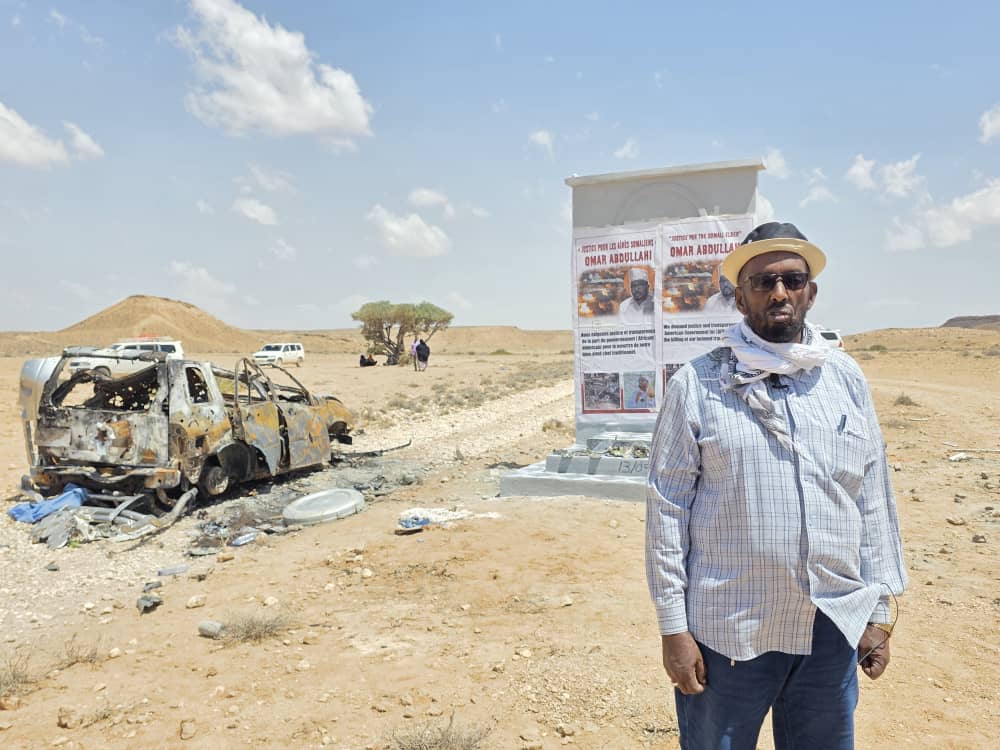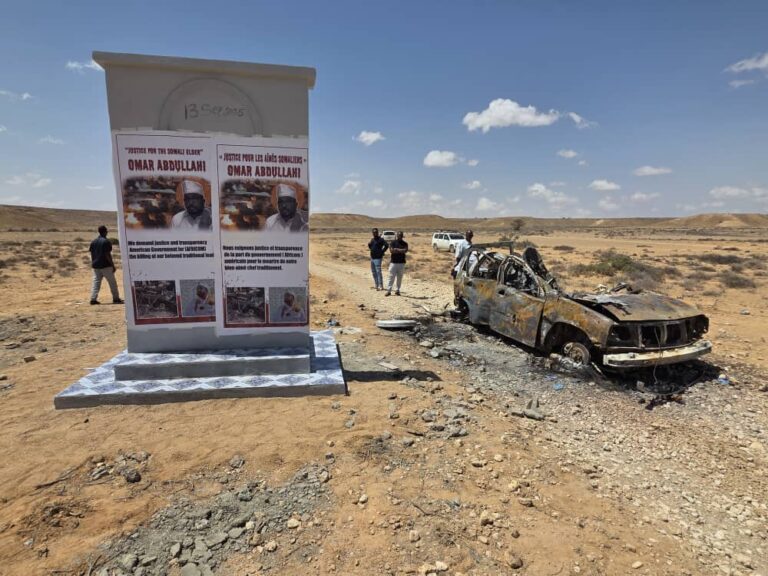MOGADISHU, Somalia — The killing of a respected Somali elder in a U.S. drone strike last month has sparked grief, outrage and growing demands for answers from local communities who say the attack was both mistaken and unjust.
Caaqil Omar Abdullahi Abdi, a widely respected clan leader known for resolving disputes and encouraging peace, was killed on Sept. 13 in Somalia’s northern Sanaag region.
The U.S. Africa Command (AFRICOM) said the strike targeted an alleged weapons trafficker linked to al-Shabab, the al-Qaeda-affiliated armed group battling Somalia’s internationally backed government.
But Somali officials, community leaders and the elder’s family insist the U.S. military got it wrong.
“He was a man of peace. He worked every day to prevent bloodshed,” said Gen. Abdullahi Omar Anshur, a local security official. “Now he is dead — killed by those who claim to be our allies.”
The drone strike hit Omar’s vehicle as he traveled alone between the towns of Elbuh and Badhan, near the village of Ji’anyo. The location and timing match AFRICOM’s official account, but local authorities say Omar had no ties to any armed group.
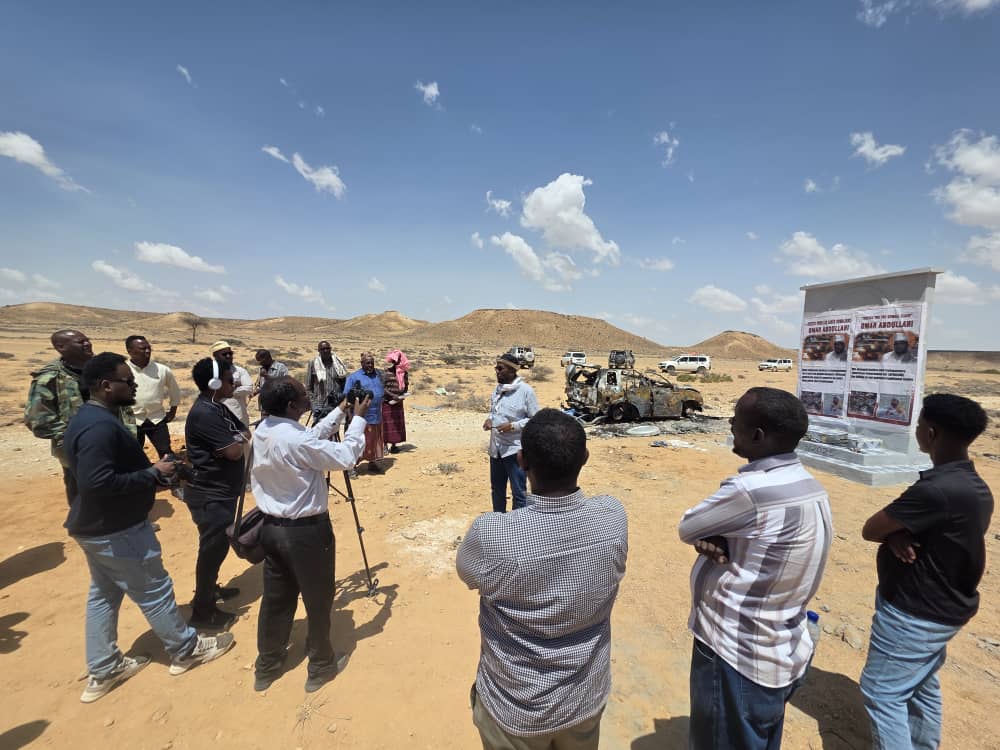
“If he had committed a crime, we would have acted. But this was not justice — it was an error, and a devastating one,” said Anshur.
Omar’s elder brother, Ali Abdullahi Abdi, described him as a life-long mediator who had spent decades promoting nonviolence.
“He never picked up a gun. He preached dialogue, not war,” he said. “Now we have buried him, and we don’t even know why.”
Shock and Protest
The strike has triggered protests across Sanaag, with elders and residents warning that the incident could destabilize local efforts to resist al-Shabab and maintain fragile peace in the region.
Emergency meetings have been held in several towns, and some leaders say the attack could undermine trust in counterterrorism efforts.
“We feel betrayed,” said Mohamed Hassan, a local elder. “If those working for peace are mistaken for enemies, who will dare stand up to the real threat?”
At the blast site, Omar’s family has erected a small memorial — a photograph of the slain elder beside charred remnants of his car and a drone sketch etched into stone.
“We visit every day,” said his brother Ali. “To pray, to remember. They thought they silenced one man. Instead, they have awakened a whole region.”
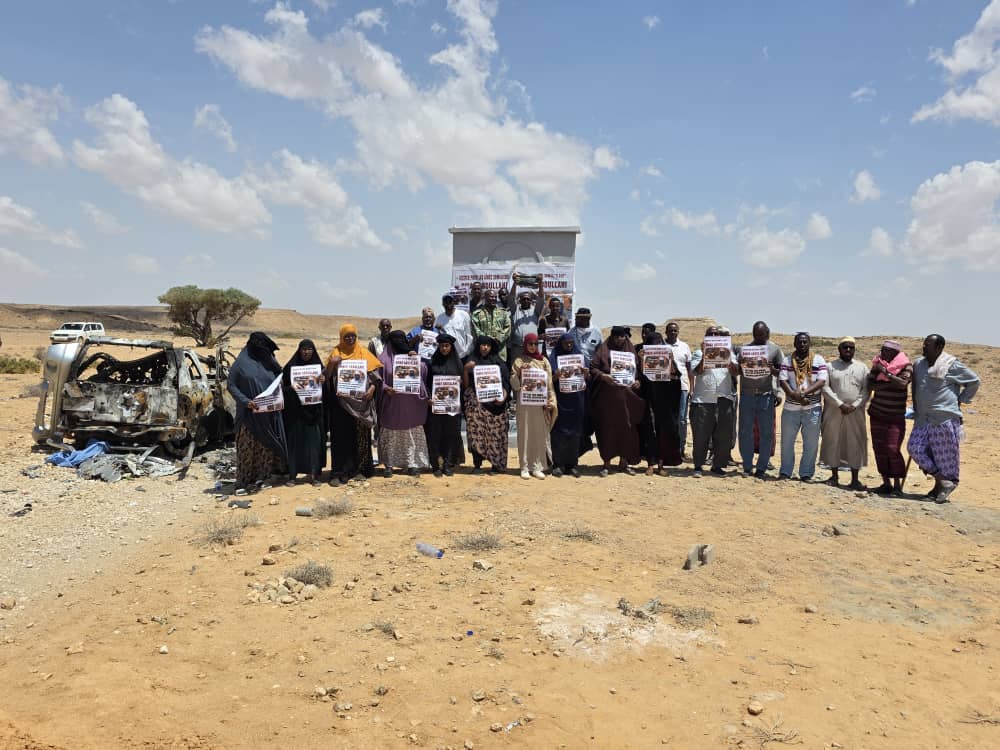
His widow, Saido Ali Abdinur, demanded justice.
“We want the world to know our pain. My husband was killed by a drone, not by fate. And we will not be silent.”
Intelligence in Question
AFRICOM said it is assessing reports of civilian casualties but provided no names or supporting evidence for its initial claim. Rights groups say such operations, often based on opaque intelligence, risk harming civilians and inflaming tensions.
Somalia’s federal intelligence agency has no known presence in Sanaag, and Puntland authorities, who administer the region, deny any role in the targeting process.
Local officials are now questioning how the U.S. obtained intelligence for the strike — and why no attempt was made to detain the elder.
“He was traveling alone, unarmed. If there were suspicions, why not arrest him?” said Mohamed Ahmed Salad, the mayor of Elbuh. “This is not how you treat a partner.”
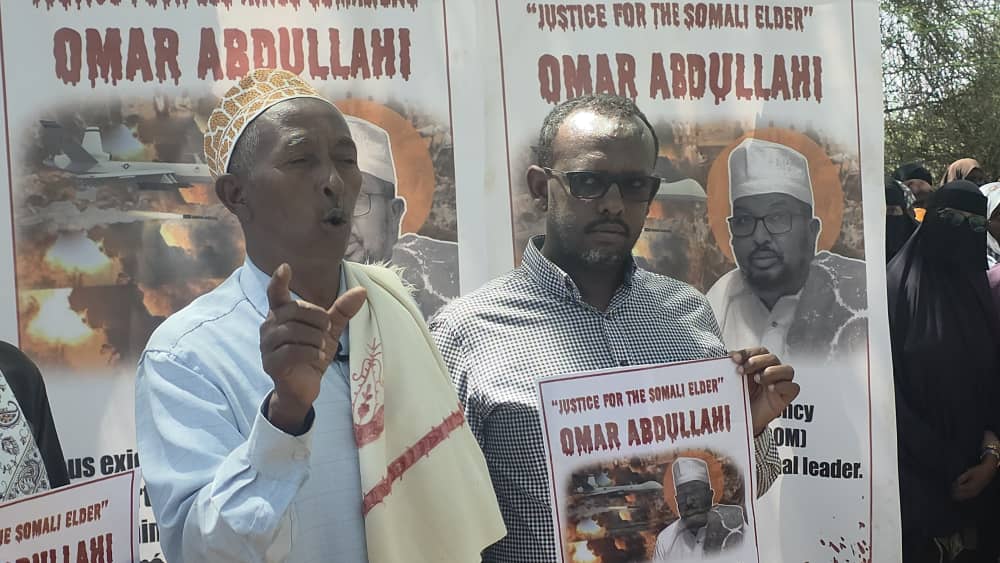
Salad said Omar’s death felt like a personal loss. He said they had worked together to keep communities united and resist al-Shabab’s influence.
He also warned that the strike has caused people to question whether their allies truly understand who is helping them, saying such mistakes could undo years of progress.
A Pattern of Grief
This is not the first time U.S. strikes in Somalia have sparked outrage. Human rights monitors say civilian casualties are often ignored or underreported and families rarely receive acknowledgment or compensation.
“Somali lives matter,” said Ali Hussein, a human rights advocate in Sinaag. “Each time a civilian is killed without explanation, it erodes public trust — and sows the seeds of future conflict.”
For Omar’s family, the wounds remain raw.
“We are not asking for revenge,” said Ali. “We are asking for the truth. And for someone to be held accountable.”
